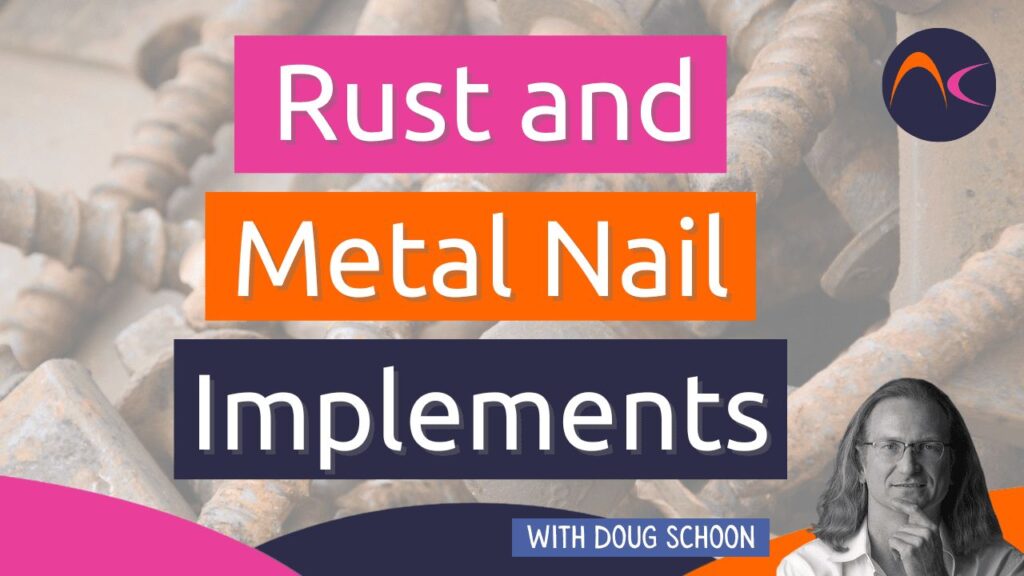Most nail professionals have experienced rust on their metal nail implements at some point in their careers.
Rust is a common concern since many people grew up hearing stories about how a rusty nail or other pieces of rusty metals can cause infections such as tetanus. That is a myth… rust does NOT cause tetanus or any other type of infection. Tetanus is caused by a bacterial infection. If these bacteria get deep into the skin, this can lead to a severe infection. But this can just as easily happen with a rust-free nail! Some people are infected with these bacteria by puncture wounds from thorns on plants such as rose bushes. Even so, rust is NOT a pathogen and rust is NOT toxic.
What is rust? The word itself comes from the German word for “red”. About 1200 BC iron began to replace bronze for the making of tools and weapons. The Roman historian and philosopher Pliny the Elder hypothesized that the Gods had created rust to limit the destructive power of iron weapons… which we know now is a rather silly notion. That’s not surprising since the ancients had made lots of silly notions and didn’t have much understanding of the world around them.
Rust is caused by water and oxygen working together to oxidize iron into iron oxide. Rust is a type of iron oxide. Water is the main culprit that causes this oxidation process. Other metals can also oxidize. Copper and bronze, for instance, will form colored patinas on their surface because of oxidation. When iron rusts, the rust takes up more space or volume which causes expansion. As this expansion continues, the metal separates into layers and flakes away from the surface.
This creates pitting and more flaking which leads to more rust formation of freshly exposed metal surfaces in contact with water and oxygen. This leads to the corrosion that is typically seen when metal rusts. Since steel is made mostly of iron, it is no surprise that steel nail implements are corroded by rust when exposed to water and oxygen, unless proper care is taken. That’s why it is important to completely dry all metal implements and keep them in a dry location. This will also prevent the growth of pathogens since they require water to live and reproduce. Therefore, keeping metal implements clean and dry has many benefits.


